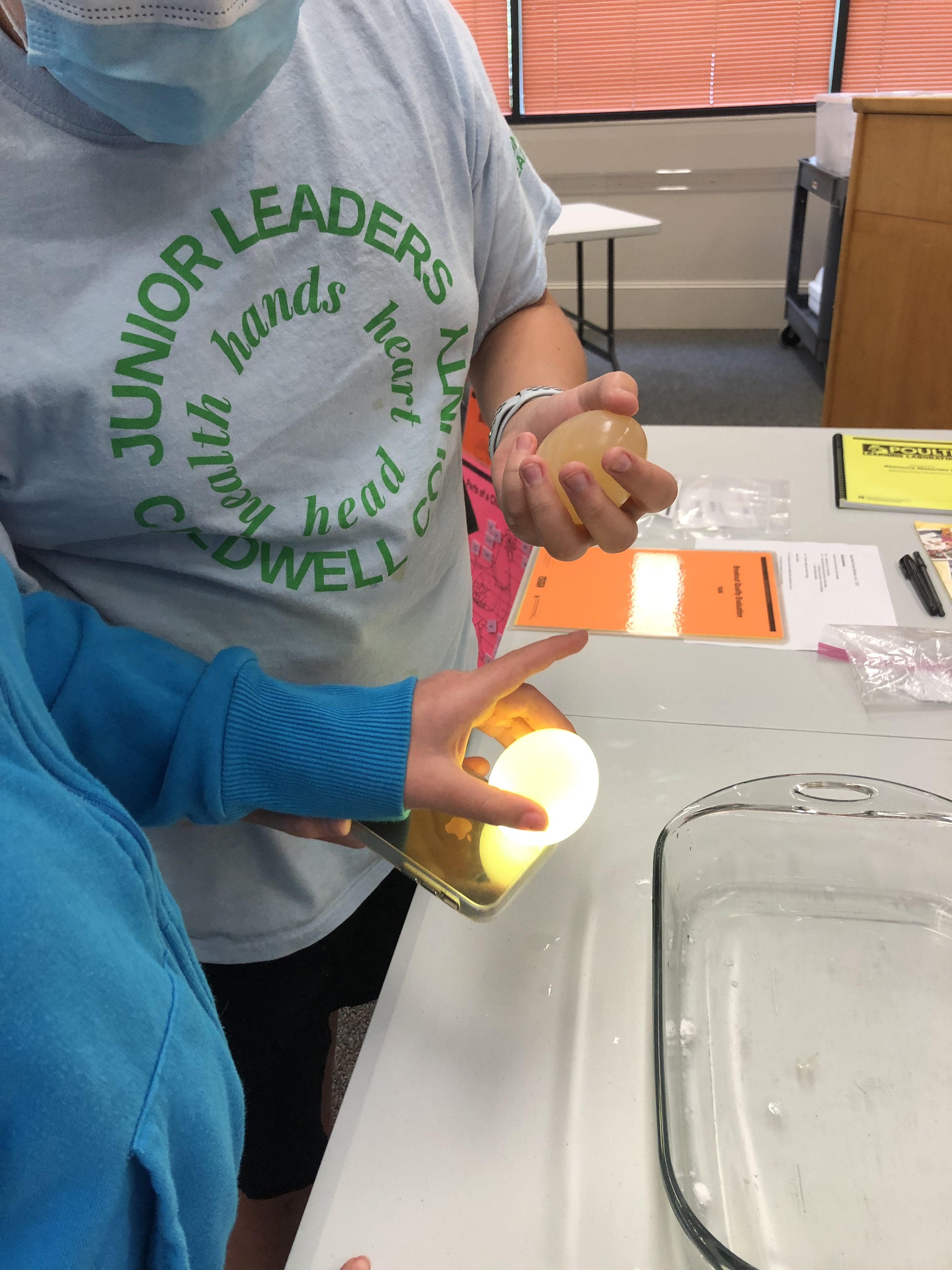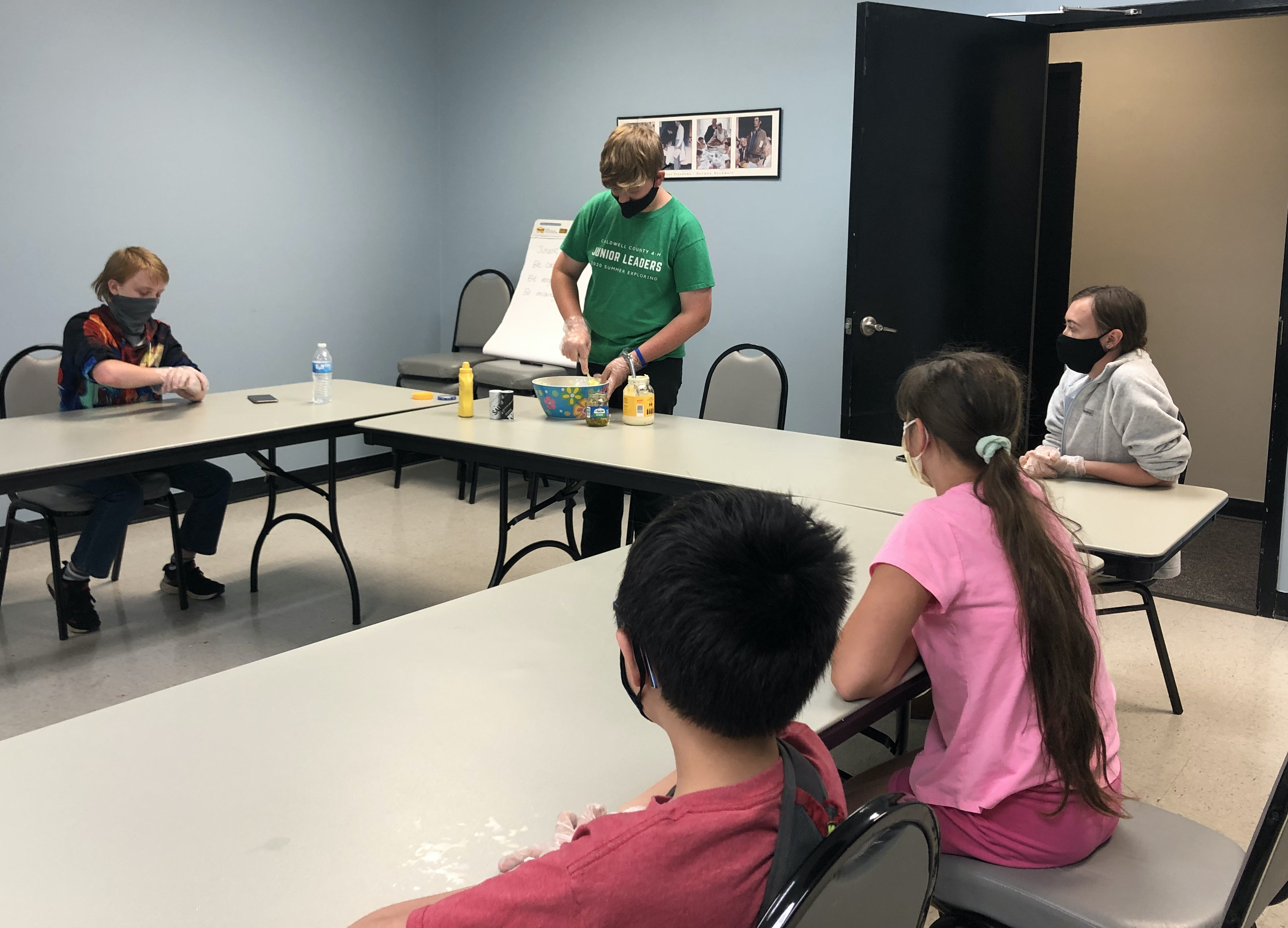Youth Learn about Eggs, Poultry
go.ncsu.edu/readext?810006
en Español / em Português
El inglés es el idioma de control de esta página. En la medida en que haya algún conflicto entre la traducción al inglés y la traducción, el inglés prevalece.
Al hacer clic en el enlace de traducción se activa un servicio de traducción gratuito para convertir la página al español. Al igual que con cualquier traducción por Internet, la conversión no es sensible al contexto y puede que no traduzca el texto en su significado original. NC State Extension no garantiza la exactitud del texto traducido. Por favor, tenga en cuenta que algunas aplicaciones y/o servicios pueden no funcionar como se espera cuando se traducen.
Português
Inglês é o idioma de controle desta página. Na medida que haja algum conflito entre o texto original em Inglês e a tradução, o Inglês prevalece.
Ao clicar no link de tradução, um serviço gratuito de tradução será ativado para converter a página para o Português. Como em qualquer tradução pela internet, a conversão não é sensivel ao contexto e pode não ocorrer a tradução para o significado orginal. O serviço de Extensão da Carolina do Norte (NC State Extension) não garante a exatidão do texto traduzido. Por favor, observe que algumas funções ou serviços podem não funcionar como esperado após a tradução.
English
English is the controlling language of this page. To the extent there is any conflict between the English text and the translation, English controls.
Clicking on the translation link activates a free translation service to convert the page to Spanish. As with any Internet translation, the conversion is not context-sensitive and may not translate the text to its original meaning. NC State Extension does not guarantee the accuracy of the translated text. Please note that some applications and/or services may not function as expected when translated.
Collapse ▲What is “egg-cellent” about poultry? Youth who participated in a two-day 4-H camp all about poultry during July can explain that eggs are nutritious, versatile and an economical protein source. They also learned about poultry farming in Caldwell County through their camp experience.
Poultry is the No. 1 agricultural commodity in North Carolina by cash receipts, and it is a fun topic to learn about if youth are interested in science, animals or agriculture. In 2019, Caldwell County produced 7,500,000 broilers, which are raised for meat, and 18,000 layers, which are raised for eggs, according to North Carolina Agriculture Statistics.
At the 4-H program, youth completed activities related to the anatomy of an egg during their first day together.
An egg is not only made up of a shell, yolk and egg white, for instance. There are membranes, thick and thin albumin (egg white), a germinal disc and more.
Like any anatomy lesson, it was best understood when youth could be hands-on as they learned. Eggs were cracked and hands became messy quickly.
One experiment families can try at home to better understand the parts of an egg is the naked egg experiment. Because egg shells are primarily calcium carbonate, they react when soaked in vinegar. The process to dissolve an eggshell takes about two days, and the result is a “naked” or translucent egg.

Two 4-H members take a closer look at eggs without their shells after learning about the anatomy of an egg.
Cooking with eggs is another fun way for families to learn about poultry products together and build skills for life.
Omelettes are typically crowd pleasers because they can be cooked and eaten individually, so youth can personalize their contents. A few participants tried a new vegetable when the 4-H group made omelettes.
Other kid-friendly and egg-centered dishes include egg salad, English muffin pizzas with hard boiled eggs and french toast.

Junior leader Peyton Denning demonstrates how to prepare egg salad during a 4-H program in July 2021.
The second time 4-H youth gathered, they learned more about poultry production from a farmer’s perspective – both backyard and commercial.
Jocelyn White, Addison Duncan and Peyton Denning raise chickens for eggs at their homes and they are all 4-H members. They sat on a panel to share their experiences with their peers during the program and were asked questions about how they care for their birds, what is challenging about raising chickens and what they like about being backyard poultry producers.
Youth who are interested in learning about poultry and other livestock are welcome to join the Livestock 4-H Club. The next club meeting is August 2, 2021, at 6:30 p.m. at the Caldwell Agriculture Fairgrounds off of US 321 in Lenoir.
Caldwell County 4-H is a member agency of United Way, and it enthusiastically supports its partnerships. Learn more about Caldwell County 4-H programs online.
Sarah Kocher is the 4-H Youth Development Agent with N.C. Cooperative Extension in Caldwell County. The N.C. Cooperative Extension, Caldwell County Center, 120 Hospital Ave. NE #1 in Lenoir, provides access to resources of NC State University and N.C. A&T State University through educational programs and publications.




